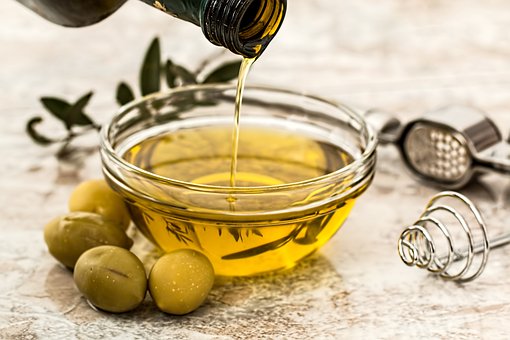The type of oil you use for cooking can have an impact on your health. Learn which oils are the best for cooking. Let’s review some of the best and safest oils that are available for use in your kitchen. These oils are all considered to be healthy options that can help you to improve your overall health.
Cooking oils are oils that you can use in cooking or baking. They come in many different varieties, such as olive oil, vegetable oil, and canola oil. When cooking, oil is most popularly used for roasting, sautéing, or pan-frying foods. Coconut oil is often used as a butter substitute in baking.
There are many different types of cooking oils, all of which are extracted from nuts/seeds, fruits, or vegetables, or rendered from animals.
You need to be careful about which oils are the healthiest to cook with. When cooking with oils, it is important to consider the source of the oil and its smoke point. Oils with a high smoke point can be used at higher cooking temperatures without smoking or burning.
Safety and Health
How hot the oil gets before it starts to smoke is an important factor to consider when picking a cooking oil.
Different oils have different maximum temperatures at which they can still function properly. At an oil’s smoking point, the production of free fatty acids increases dangerously.
Choose your cooking oil based on the temperature you’ll be cooking at. There is no one definitive guide for oil smoking temperatures, as people’s opinions vary on what temperature is best for smoking.
Use your judgement to decide if your oil has gone bad. If your oil is giving off a lot of smoke, smells bad, and tastes burnt, get rid of it and start again with a lower heat setting or a different oil.
Saturated Fats vs Unsaturated Fats
Saturated fats are generally the safest to cook with because they do not oxidize easily. The hydrocarbon tail of saturated fat is simple and there are no double bonds, which makes them solid at room temperature and more stable.
This means that most saturated fats can be used for sautéing, baking, and roasting at temperatures between 250-450°F.
You can also use oils that are high in monounsaturated and polyunsaturated fats for cooking. When selecting an unsaturated fat for cooking, factors such as how the fat was refined and extracted should be considered.
Cold-pressed and unrefined oils contain more nutrients and polyphenols, but they are more delicate than refined and expeller-pressed oils.
For high-heat cooking, you should use refined oils, and for lower-heat baking, cooking, and sauteing, you should use unrefined and cold-pressed oils.
You should also consider the nutritional benefits of the oil when choosing a cooking oil. You should use different oils when cooking to get more nutrients.
When cooking, use a variety of saturated and unsaturated fats, and try to use oils with a higher ratio of omega-3 to omega-6 fatty acids. Omega-3 fatty acids can help reduce inflammation, and we tend to consume far less of them than omega-6 fatty acids in our modern American diets.
A general guideline is that polyunsaturated cooking oils have more omega-6 fatty acids than saturated cooking oils from pasture-raised animals.
The Safest Oils To Use for Cooking
1. Avocado Oil
Avocado oil is a great choice for cooking oil because it has a very high smoking point and a neutral taste.
Avocados are rich in oleic acid, a monounsaturated fatty acid that has been shown to reduce blood pressure, promote brain function, and decrease cancer risk.
Avocado oil is made from the pulp of avocados and it carries the same benefits as avocados. These benefits include optimizing health.
Nicole says that consuming avocado oil with vegetables increases the absorption of soluble vitamins that need fat to be absorbed. These soluble vitamins include vitamins A, D, E, and K.
The high smoke point of avocado oil makes it a good choice for cooking methods that require high heat. You can use it to smoke meat on the grill or cook your favorite whole grains.
2. Coconut Oil
Refined coconut oil can be used for high-heat cooking while still containing lauric acid and other medium-chain triglycerides.
You can also use virgin coconut oil, but be aware that it has a lower smoking point and a coconut flavor. You can find coconut oil everywhere these days.
3. Animal Fats
Animal fats that have been rendered, such as beef tallow, chicken schmaltz, duck fat, and lard, are saturated fats that are heat stable. Animal fats not only add flavor to food, but they are also safe to use for high-heat cooking because they have high smoke points.
4. Ghee and Butter
If you are able to have dairy in your diet, consider using butter or ghee as your cooking oils. Ghee, which contains very little lactose, may be worth a try even if you are lactose intolerant. Adding either butter or ghee to your food can help enhance the flavor.
As ghee doesn’t contain milk solids, it can be used for cooking at higher temperatures than butter. Grass-fed ghee is also a nice source of nutrition.
5. Palm Shortening
Palm shortening is ideal for baking and cooking because it can withstand high temperatures without losing its structural integrity or flavor. Many people like to use this type of oil for cooking because it is good for baked goods and deep frying.
When choosing an option for palm oil, be sure to pick a sustainable option, like this red palm oil from Nutiva. This kind of palm oil also has the added benefit of being a source of vitamin E.
6. Olive Oil
Olive oil is not just for salad dressings, it can be used for cooking as well. Although many people think otherwise, olive oil can tolerate high temperatures without being damaged. Extra virgin olive oil can still be used for cooking without causing much degradation or loss of nutrients.
Olive oil is good for you because it is high in heart-healthy oleic acid and antioxidant-rich polyphenols. Olive oil contains a lot of monounsaturated fats, which are generally considered to be healthy.
I prefer organic olive oil for most of my cooking and I use olive oil in my homemade salad dressings.
Some cold-pressed seed oils are nutrient-rich and add a unique flavor to food. Since cold-pressed seed oils don’t do well in heat, it’s better to use them for salads.
Olive oil is good for you because it contains monounsaturated fatty acids that help to decrease inflammation, lower bad LDL cholesterol, and prevent chronic disease.
Because extra-virgin olive oil is pressed from ripe olives and produced without high heat or chemicals, it is healthier than other types of olive oil.
Although it has a lower smoke point, olive oil also has a lower oxidation rate than other oils, meaning it releases fewer free radicals. A 2018 study found that olive oil does not start to smoke until it is slightly above its smoke point.
Since olive oil has a lower smoke point it is not suitable for use in cooking methods like grilling or frying. To avoid burning foods, use olive oil at lower temperatures by incorporating it into your salad dressings, dips, or on top of warm dishes.
7. Canola Oil
The canola plant is in the same family as broccoli and cauliflower. Canola oil is extracted from the seeds of the canola plant.
Canola oil is a good source of monounsaturated fats, with one tablespoon containing 8 grams, according to Mary Gollan, MS, RD, a registered dietitian at Preg Appetit.
This food is rich in omega-3 fatty acids, which have anti-inflammatory properties, can help reduce liver fat, and may lower the risk of stroke and heart disease.
One of the oils recommended by the American Heart Association for a heart-healthy diet is canola oil, which is healthy for the heart.
Canola oil that has been refined has no flavor and can be used for high-heat cooking. This oil is ideal for deep-frying or roasting vegetables and meat.
8. Sesame Oil
Sesame oil contains a lot of monounsaturated and polyunsaturated fatty acids. It also has a high smoke point, so it’s a good option for cooking.
Sesame’s healthy fats and polyphenols may help to regulate blood pressure.
Sesame oil has a smoke point of 410 °F, which is good for roasting and pan-frying foods. Toasted sesame oil is best in dishes where its nuttiness enhances the flavor, like in a salad or marinating chicken or salmon.
9. Soybean Oil
Soybean oil is extracted from the seeds of the soybean plant. It is also commonly sold as vegetable oil.
The bean also contains large amounts of omega-3 fatty acids, which reduce your risk of heart disease. Soybean oil is a good source of vitamin K, which is important for healthy bones. Soybean oil also contains omega-3 fatty acids, which can help reduce your risk of heart disease.
If you’re looking for an oil to use for high-heat cooking methods, this is a great option since it has a high smoke point of 450 °F. The neutral taste of this oil is perfect for baking, frying, and sautéing your favorite ingredients.
10. Safflower Oil
Safflower oil is made of seeds that come from the safflower plant. It is low in saturated fatty acids and high in heart-healthy monounsaturated and polyunsaturated fats.
Safflower oil can be used for high temperature cooking because it has a high smoking point. This oil is good for your backyard barbecue or stir frying some delicious veggies.
11. Flaxseed Oil
Flaxseed oil is rich in omega-3 fatty acids. Flax seeds are very high in omega-3 fatty acids, which is great for heart and brain health, and also helps with inflammation.
Flaxseed oil is not suitable for recipes that require high temperatures, such as stir-frying, because it has a low smoke point of 225 °F.
12. Peanut Oil
Peanut oil is rich in nutrients like vitamin E, monounsaturated fats, polyunsaturated fats, antioxidants, and omega-6 fatty acids. Vitamin E is needed for good vision, immunity, and blood flow.
Cold pressed, unrefined peanut oil contains the most nutritional benefits as the peanuts are processed through a mechanical process without heat or chemicals.
Refined peanut oil can be used at high temperatures without it burning.
13. Walnut Oil
Walnut oil contains healthy fats that are good for your heart and might also help to lower your cholesterol.
Walnut oil also contains vitamin K and antioxidants.
If you want to use walnut oil for cooking, you should get the refined version because it has a higher smoke point. The nutty flavor of the dish can be enhanced by adding roasted vegetables, grains, grilled fish, or salads.
14. Almond Oil
Almond oil contains vitamins E and K, as well as beneficial monounsaturated and polyunsaturated fatty acids.
A review published in 2021 found that almond oil may improve cardiovascular health and reduce oxidative stress, due to its high vitamin E content.
The oil from almonds can be used to roast or saute food up to a temperature of 430 degrees.
Conclusions
You should be careful about which oils you use for cooking and eating. Some of the safest oils to use include those that come from avocados, coconuts, olives, and palms. Ghee or butter made from animal fats is also considered to be a safe option.









